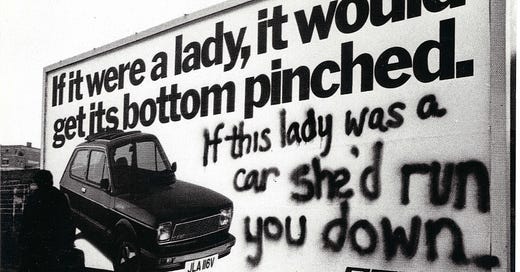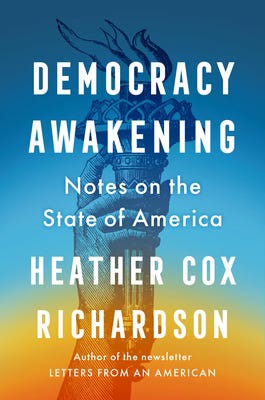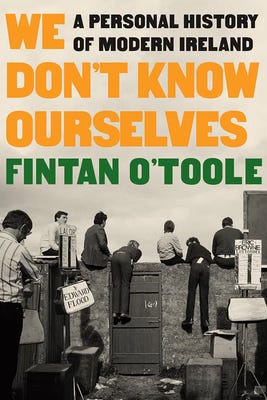Sometimes, when I’m feeling discouraged, I fear that feminism is dead. Or, if not dead, just so out of fashion that no one wants to wear it in public. They’ll put it on around home, but wouldn’t dream of wearing it at work or to the neighbors’ holiday party, the increasingly distant memory of pink pussy hats notwithstanding.
Not too long ago, in a creative writing class in which I was by far the oldest student in the room, we read “The Necklace,” by Guy de Maupassant as we began our short fiction section. I’ve always disliked that story, and was a bit surprised that it’s still being trotted out for students’ edification so many years after I first encountered it. I mean, there have been lots of short stories written since that would tick the Irony box on the syllabus and aren’t so thoroughly steeped in misogyny.
The rest of the class was unanimous in their dislike of Mathilde, calling her greedy, ungrateful, shallow. But what’s wrong with a woman wanting more, aspiring to bigger things? Shouldn’t we be asking why de Maupassant is so disdainful of Mathilde? Why ambition in a woman must be punished? I’m aware that these were the prevailing attitudes in nineteenth century Paris, but shouldn’t a modern audience experience some sort of dissonance around such a biased treatment of women? And why do we accept these stilted literary depictions of women, stifled and consigned to largely tragic ends, as canon, or as fact, when the reality of actual women’s lives often involved a great deal of ambition and even success?
I couldn’t help myself. I asked my fellow students, “What if Mathilde was a man? How would you feel about him?” My question fell flat. There were a few shrugs and not much else. But it got me thinking, and, if I’m honest, fuming a bit. I wrote a first draft of the following poem that same day.
End of Story
If Beatrice had been a man she might well
have eaten poor, stupid Claudio’s
heart in the marketplace.
And maybe she’d have run the bilious
Don John through with a sword, too,
just for being such a devious prick.
If tragic Anna had been a man
she might have gone shooting with Vronsky
and left town on the train, not under it.
And Madame B., starry-eyed Emma, had
she been born a man she could have
just moved to Paris and gone to the theater.
End. Of. Story.
But what of charming Mathilde and
the necklace of doom, the elegant
girl who couldn’t love her mediocre life?
Had she been a man her greed
would be his ambition, her dissatisfaction
his discernment. We would pity him
his sweetly complacent wife, wish
for him a partner who shared his
striving nature and yearning for more.
Mathilde as a man might have risen
through clerkship to greater
heights in the bureaucracy.
And perhaps made some wise
investments, become a man of
property and influence.
Happily ever after. The End
Instead she lost a necklace and, in her shame,
paid for it with her youth and beauty.
Serves her right, the ungrateful tart.
Shame on all these girls too foolish to be
born men. They must have known that
passion flatters only the male form.
If they’d only all been boys we could
have loved them better and forgiven them
those flaws that are nearly always fatal in girls.
There were a few other tragic women I tried to include here, but who ultimately didn’t find a place. Daisy Miller was one (Vivacious, outgoing young debutante shocks society by running around without a chaperone. Naturally, she dies of “the Roman Fever,” an unspecified illness that seems to particularly afflict young women walking about with young men at night.) What other characters would you include?
What I’m Reading:
I finished
’s new book, Democracy Awakening: Notes on the State of America, this week. I’m more grateful to her than I can express. This book starts off by describing the road we’ve traveled to our current dire situation, but ends with a hopeful review of American resilience and of the many times we’ve faced and conquered the rise of authoritarianism in the past. It gave me a feeling of hope and purpose. It’s the history lesson our nation needs right now. Her here on Substack was my first ever subscription. It is, nearly always, the most important thing I read all day. I cannot recommend it highly enough.
I started on Fintan O’Toole’s We Don’t Know Ourselves: A Personal History of Modern Ireland after hearing him speak on NPR earlier in the week on Rick Steeves radio show. He sounded so smart, affable, and compassionate. It felt like just what I needed.
On Substack:
I recently found
and am so excited to catch up on all previous posts. It’s easy to think of feminism, and feminists, as recent developments. But the struggle is long and we have been denied knowledge of so many powerful, creative, and influential women simply because they were not the ones writing the history books. is a treasure trove of lost stories about real women. It’s smart, and thoughtful, and a lot of fun to read if you happen to be a fan of history, feminism, and good stories.
What I’m Listening To:
I have Noah Kahan’s Stick Season on repeat these days, and not just because it’s definitely stick season in Maine right now. I don’t think I’ve ever heard an artist capture the sometimes bleak reality of New England quite so accurately and artfully as he does. The pictures he paints with his songs are so familiar and true, sometimes it makes me wince. But he also makes me laugh - in that dark way we Northerners do- at things that others don’t find funny.
Thanks for reading.







I was teaching my high schoolers about Mary Wollstonecraft yesterday and also got a lackluster response about feminism. I’m fuming along with you.
Wow, this praise has truly touched my heart. Thank you so very much! Your words were needed today, as the brain-space weighs heavy. Thank you for your kindness, for your support, and for being a fellow conspirator in defying the patriarchy with our laughter, joy, creativity, and wit! Sending so much love your way.